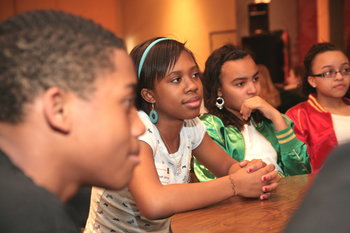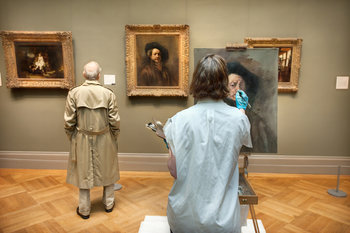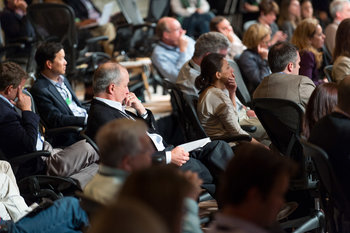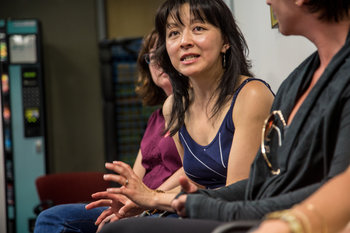
Agency
Agency is the degree to which an individual believes they can influence the world. For example, a history student with low agency may believe everything they read is set in stone. A student in the same class with high agency may look for weaknesses in arguments and evidence because they believe they have the power to interpret things for themselves.Intellectual Courage
Independent thinking requires the courage and resilience to think for yourself in the face of social pressure to conform such as groupthink. It is common for independent thinkers to be harshly criticized, ostracized or misunderstood. It is also common for independent thinkers to thrive, particularly where a society is based on freedom, competition and debate.Freethinking
Freethinking is a thought process that breaks free of usual constraints imposed by things like society, culture, tradition and social pressure. This can be surprisingly difficult to achieve as we all make assumptions based on our upbringing, education and experiences.Counterfactual Thinking
Counterfactual thinking is the process of imagining things that differ from current reality. For example, imagining how cities would look if the car were never invented.Devil's Advocate
Devil's advocate is the practice of temporarily considering ideas that may seem wrong, unpopular or outlandish. For example, a teacher who states that teachers aren't important to education and the practice of teaching should be abolished.Challenging Assumptions
The ability to identify and validate the assumptions behind ideas, including your own assumptions. For example, an aircraft designer who challenges the automatic assumption that a new aircraft will be powered by oil.First Principles
First principles are things that are known to be true in a particular domain or that are assumed to be true for practical purposes. These are powerful tools for questioning assumptions and identifying things that don't make any sense. For example, a designer who challenges a design based on the principle of least astonishment and the argument that users will find the design nonintuitive.Quiet Thinking
It is characteristic of independent thinkers to think to themselves for extended periods of time without relying on conversation to think. A society or group that seeks to defeat independent thinking is likely to require all learning and decisions to be social processes such that the majority opinion can defeat any independent thinking.Divergent Thinking
Divergent thinking is the process of solving a problem with no single solution. This can be contrasted with convergent thinking where there is a well accepted correct answer to a problem. Independent thinking is mostly applied to divergent thinking where they are many different answers that may be reasonable. As such, societies that seek to prevent independent thinking will tend to focus on convergent thinking such as the type of questions typically found on a standardized test.Contrarianism
Contrarianism is the tendency to distrust popular views and to support the opposite of what the majority believe. This is often a simulation of independent thinking that isn't necessarily based on logic and evidence. As such, it can't be said that an individual is an independent thinker simply because they have unique or unpopular views.Reactance
Reactance is the human tendency to strongly react to perceived attempts to take away freedoms. This can cause contrarian viewpoints that don't actually result from independent thinking. For example, people may react against anything perceived as propaganda as a threat to their freedom.| Overview: Independent Thinking | ||
Type | ||
Definition | The ability to come up with original ideas and interpretations or to validate thinking that aligns with conventional thought. | |
Related Concepts | ||




























